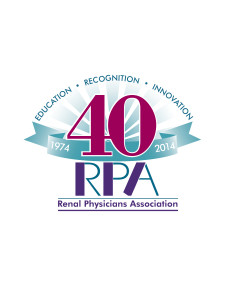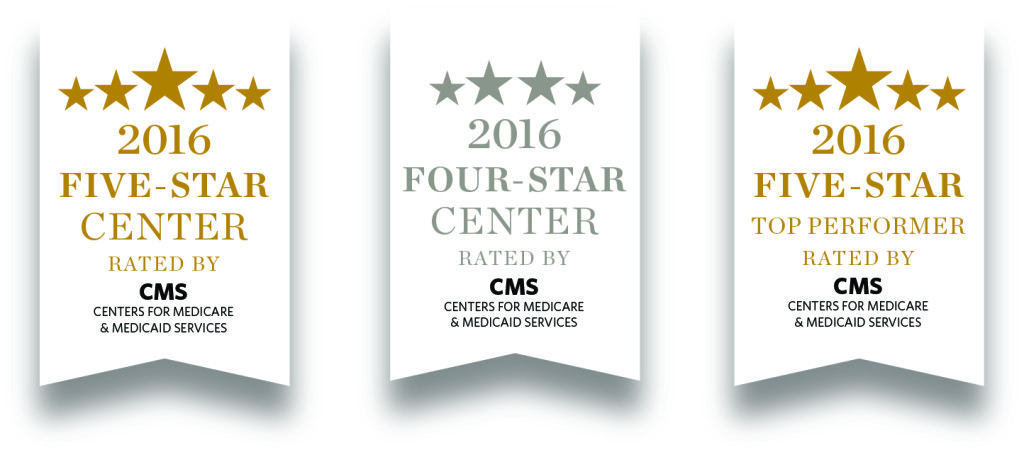March 19, 2014
By Allen Nissenson, MD posted in Nephrology with
No Comments
 When I was a young faculty member at UCLA, I had heard about the Renal Physicians Association (RPA) but did not think there would be any reason to join. After all, this was a group that focused on payment issues for nephrologists, and how could that possibly be relevant to someone who was a salaried doctor, and at an academic health center? As I delved into my responsibilities at UCLA, however, and became responsible for overseeing the care of patients in a large dialysis program almost entirely dependent on Medicare for reimbursement, it started to become clear to me how critical it was to have a strong advocacy organization that could work with Medicare and Congress to craft the most appropriate, effective and fair public policy for the end stage renal disease (ESRD) program. In addition, as clinical nephrology practice was becoming more complex with the new appreciation for the scope of the chronic kidney disease (CKD) epidemic, the need for tools to assist nephrologists in delivering the highest-quality care increased dramatically. I saw the light, and the rest is history. I joined RPA, worked on committees, served on the board of directors (1993-2006) and eventually served as president (1999-2001).
When I was a young faculty member at UCLA, I had heard about the Renal Physicians Association (RPA) but did not think there would be any reason to join. After all, this was a group that focused on payment issues for nephrologists, and how could that possibly be relevant to someone who was a salaried doctor, and at an academic health center? As I delved into my responsibilities at UCLA, however, and became responsible for overseeing the care of patients in a large dialysis program almost entirely dependent on Medicare for reimbursement, it started to become clear to me how critical it was to have a strong advocacy organization that could work with Medicare and Congress to craft the most appropriate, effective and fair public policy for the end stage renal disease (ESRD) program. In addition, as clinical nephrology practice was becoming more complex with the new appreciation for the scope of the chronic kidney disease (CKD) epidemic, the need for tools to assist nephrologists in delivering the highest-quality care increased dramatically. I saw the light, and the rest is history. I joined RPA, worked on committees, served on the board of directors (1993-2006) and eventually served as president (1999-2001).
The nephrologists who originally formed RPA were ahead of their time. They began to build important relationships with the Health Care Financing Administration (HCFA), now called the Centers for Medicare and Medicaid Services. This collaboration served all nephrologists and kidney patients well in the subsequent four decades, with key regulatory and legislative achievements focused on improving the lives of patients while ensuring that nephrologists’ interest were represented as well. As the organization matured it began to focus intently on driving quality in ESRD care, and in 1993 it developed the first clinical practice guideline in our discipline—addressing adequacy of dialysis—several years before the Disease Outcomes Quality Initiative was begun. The most recent guideline on appropriate initiation and withdrawal of dialysis has become a seminal resource for nephrologists, patients and families to assist in decision-making at the difficult time of transition to dialysis. Myriad tools to assist nephrologists in optimizing care for CKD and ESRD patients have also been developed and disseminated.
I am particularly proud of RPA’s accomplishments during my two-year tenure as president. The following are some of the highlights:
- RPA initiates Renal Fellows Workshop prior to annual meeting
- First nephrology practice benchmarking survey conducted and presented
- RPA launches corporate patrons program to engage in dialogue with industry supporters
- RPA publishes first edition of the Renal Physicians Guide to Nephrology Practice
- RPA convenes summit on chronic renal disease (with American Society of Pediatric Nephrology, American Society of Nephrology, and National Kidney Foundation)
- HCFA responds to RPA’s request for community input on a method to measure and report on quality of renal dialysis services with establishment of the ESRD stakeholders council
- RPA surveys randomly selected nephrology practices on expenses associated with the inpatient dialysis codes and the monthly capitation payment
- RPA offers mortgage-financing assistance to members for home purchases
- RPA publishes second clinical practice guideline on appropriate initiation and withdrawal of dialysis
- RPA launches third guideline on appropriate patient preparation for renal replacement therapy
- RPA publishes Capitation Models for ESRD: Methodology and Results—culmination of a two-year data-collection and -analysis effort supported by member contributions; risk-adjusted capitation rates and total spending for ESRD patient care
- Past RPA president Dr. Derrick Latos becomes chair of the Practicing Physicians Advisory Council (established by Congress in 1990 to advise the Health and Human Services secretary on regulations and carrier manual instructions that relate to MD services under Medicare/Medicaid)
- RPA launches patient safety initiative; convenes multistakeholder workshop
- RPA launches website; creates www.renalmd.org
- RPA testifies at Senate Special Committee on Aging in the ESRD program
I am very proud of what the organization accomplished during those years and subsequently, but now it’s time to focus on the future. The discipline of nephrology faces many challenges now and in the years to come: trainees’ waning interest in becoming nephrologists; continued downward pressure on reimbursement for nephrology procedures/activities; an increase in the number of employed physicians throughout healthcare; the rise of Accountable Care Organizations and other risk-taking, risk-sharing organizations; the increasing emphasis on value rather than volume in healthcare; federal budget constraints and pressure to restructure Medicare; a growing elderly, frail population with multiple chronic illnesses; etc., etc.
Some nephrologists are already throwing up their hands in despair, but my advice—which comes from years of watching the ESRD program grow and mature and from working with RPA—is to be a champion for our patients and our discipline. Helping strengthen RPA and being an active participant in the advocacy, public policy, and quality-of-care efforts is the best way to truly be a champion in nephrology.
As Muhammad Ali said,
Champions are made from something they have deep inside them—a desire, a dream, a vision.
HAPPY BIRTHDAY, RPA!
Tagged as: Nephrology, Renal Physicians Association, rpa
 Patients have many choices when it comes to dialysis treatment, and making a decision of where to receive care can be confusing. A recently updated tool from the federal government simplifies that process, making it easier for patients, their families and caregivers to compare the quality of kidney care providers.
Patients have many choices when it comes to dialysis treatment, and making a decision of where to receive care can be confusing. A recently updated tool from the federal government simplifies that process, making it easier for patients, their families and caregivers to compare the quality of kidney care providers.



 When I was a young faculty member at UCLA, I had heard about the Renal Physicians Association (RPA) but did not think there would be any reason to join. After all, this was a group that focused on payment issues for nephrologists, and how could that possibly be relevant to someone who was a salaried doctor, and at an academic health center? As I delved into my responsibilities at UCLA, however, and became responsible for overseeing the care of patients in a large dialysis program almost entirely dependent on Medicare for reimbursement, it started to become clear to me how critical it was to have a strong advocacy organization that could work with Medicare and Congress to craft the most appropriate, effective and fair public policy for the end stage renal disease (ESRD) program. In addition, as clinical nephrology practice was becoming more complex with the new appreciation for the scope of the chronic kidney disease (CKD) epidemic, the need for tools to assist nephrologists in delivering the highest-quality care increased dramatically. I saw the light, and the rest is history. I joined RPA, worked on committees, served on the board of directors (1993-2006) and eventually served as president (1999-2001).
When I was a young faculty member at UCLA, I had heard about the Renal Physicians Association (RPA) but did not think there would be any reason to join. After all, this was a group that focused on payment issues for nephrologists, and how could that possibly be relevant to someone who was a salaried doctor, and at an academic health center? As I delved into my responsibilities at UCLA, however, and became responsible for overseeing the care of patients in a large dialysis program almost entirely dependent on Medicare for reimbursement, it started to become clear to me how critical it was to have a strong advocacy organization that could work with Medicare and Congress to craft the most appropriate, effective and fair public policy for the end stage renal disease (ESRD) program. In addition, as clinical nephrology practice was becoming more complex with the new appreciation for the scope of the chronic kidney disease (CKD) epidemic, the need for tools to assist nephrologists in delivering the highest-quality care increased dramatically. I saw the light, and the rest is history. I joined RPA, worked on committees, served on the board of directors (1993-2006) and eventually served as president (1999-2001).

